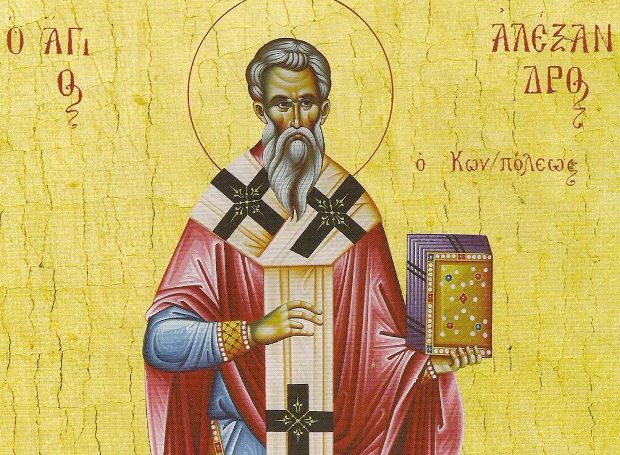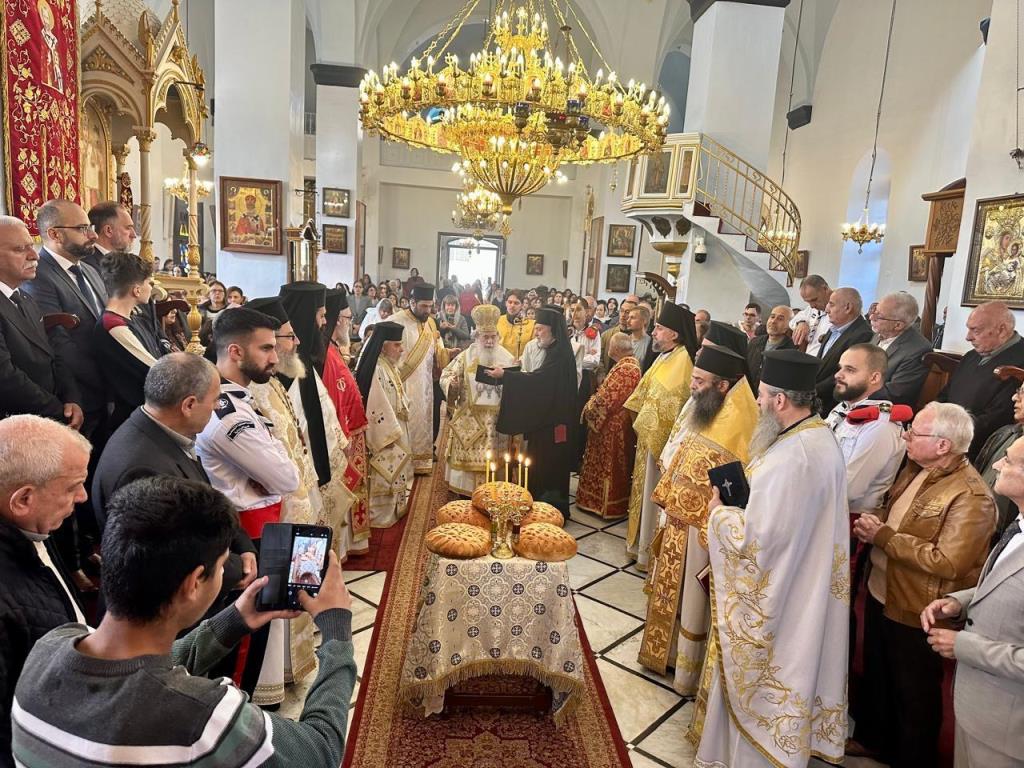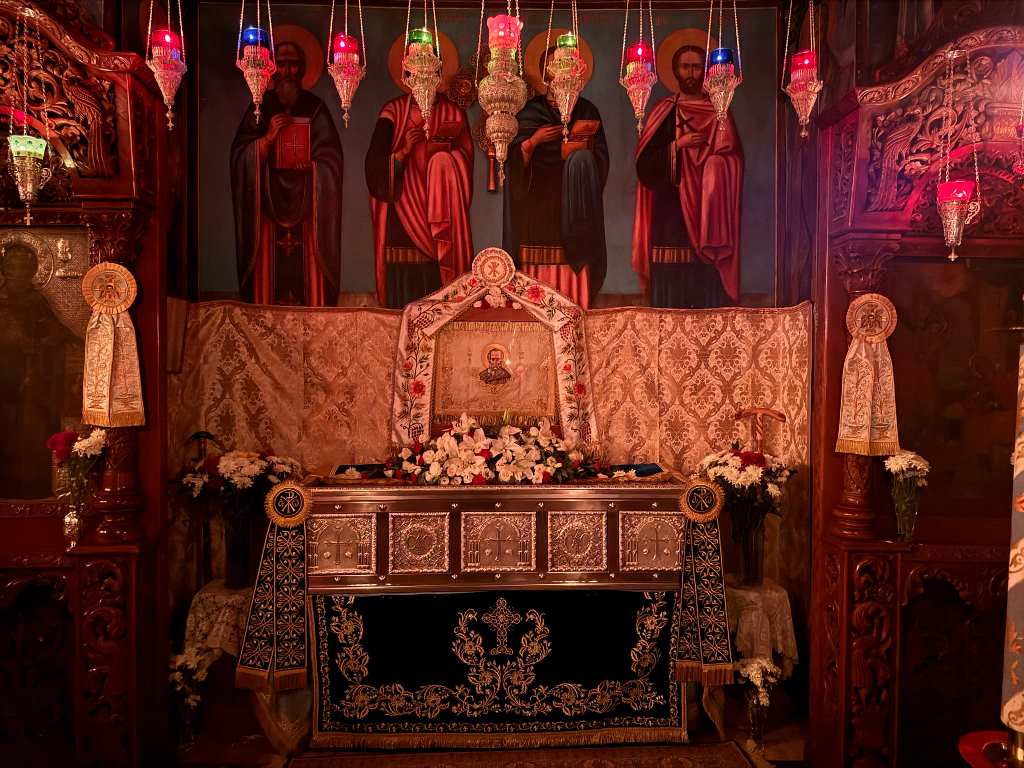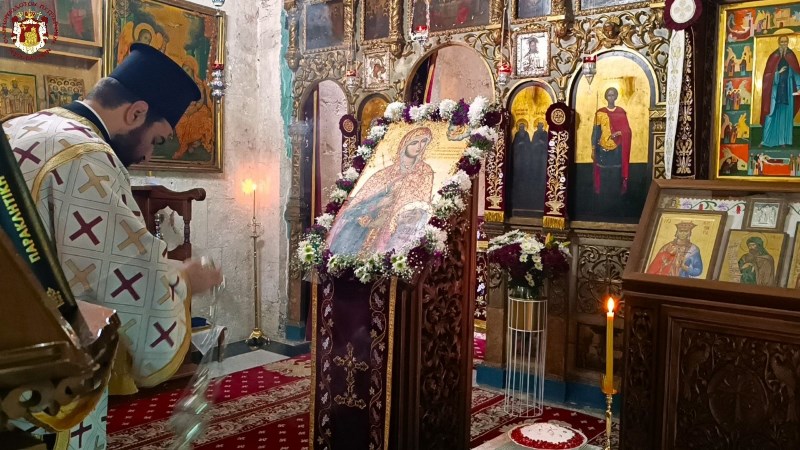Saint Alexander, Patriarch of Constantinople (30 August)


Saints Alexander, John and Paul, Patriarchs of Constantinople, lived at different times, but each of them happened to clash with the activities of heretics who sought to distort the teachings of the Church. Saint Alexander (325-340) was a vicar bishop during the time of Saint Metrophanes (June 4), the first Patriarch of Constantinople.
Because of the patriarch’s extreme age, Alexander substituted for him at the First Ecumenical Synod at Nicea (325). Upon his death, Saint Metrophanes left instructions in his will to elect his vicar to the throne of Constantinople. During these times His Holiness Patriarch Alexander had to contend with the Arians and with pagans. Once, in a dispute with a pagan philosopher the saint said to him, “In the Name of our Lord Jesus Christ I command you to be quiet!” and the pagan suddenly became mute. When he gestured with signs to acknowledge his errors and affirm the correctness of the Christian teaching, then his speech returned to him and he believed in Christ together with many other pagan philosophers. The faithful rejoiced at this, glorifying God Who had given such power to His saint.
The heretic Arius was punished through the prayer of Saint Alexander. Arius had apparently agreed to enter into communion with the Orthodox. When the Emperor asked him if he believed as the Fathers of Nicea taught, he placed his hand upon his breast (where he had cunningly concealed beneath his clothes a document with his own false creed written upon it) and said, “This is what I believe!” Saint Constantine (May 21), unaware of the deceitful wickedness of Arius, set a day for receiving him into the Church. All night long Saint Alexander prayed, imploring the Lord not to permit this heretic to be received into communion with the Church.
In the morning, Arius set out triumphantly for the church, surrounded by imperial counselors and soldiers, but divine judgment overtook him. Stopping to take care of a physical necessity, his bowels burst forth and he perished in his own blood and filth, as did Judas (Acts 1:18).
His Holiness Patriarch Alexander, having toiled much, died in the year 340 at the age of 98. Saint Gregory the Theologian (January 25) mentioned him afterwards in an encomium to the people of Constantinople.
The Service to Saint Alexander was printed in Venice in 1771. According to some ancient manuscripts, Saint Alexander ought to be commemorated on June 2. Today he is remembered together with the holy Patriarchs John the Faster (September 2) and Paul the New (eighth century).
Saint Alexander was sent to the First Ecumenical Council in Nicaea as the delegate of Saint Metrophanes, Bishop of Constantinople (see June 4), to whose throne he succeeded in the year 325. When Arius had deceitfully professed allegiance to the Council of Nicaea, Saint Alexander, knowing his guile, refused to receive him into communion; Arius’ powerful partisans threatened that they would use force to bring Arius into the communion of the Church the following day. Saint Alexander prayed fervently that God might spare the Church; and as Arius was in a privy place relieving nature, his bowels gushed forth with an effusion of blood, and the arch-heresiarch died the death of Judas. Saint Alexander was Bishop from 325 until 337, when he was succeeded by Saint Paul the Confessor, who died a martyr’s death at the hands of the Arians (see Nov. 6). The Saint John commemorated here appears to be the one who was Patriarch during the years 562-577, surnamed Scholasticus, who is also commemorated on February 21. He was from Antioch, where he had been a lawyer (scholasticus); he was made presbyter, then was sent to Constantinople as representative (apocrisiarius) of the Patriarch of Antioch, and was appointed Patriarch of Constantinople by the Emperor Justinian. Saint Paul was Bishop of Constantinople during the years 687 – 693, in the reign of Emperor Justinian II, and presided over the Quinisext Council in 692.
Apolytikion of Alexander, Paul & John, Pats.Of Const.
Fourth Tone
O God of our Fathers, ever dealing with us according to Thy gentleness: take not Thy mercy from us, but by their entreaties guide our life in peace.
Kontakion of Alexander, Paul & John, Pats.Of Const.
Plagal of the Fourth Tone
Aflame with love for Christ, ye took His yoke upon yourselves; and since ye emulated well His life upon the earth, ye were also made partakers of His great glory. Now, O Fathers Alexander the divinely-wise, wondrous John, and glorious Paul, ye stand before His throne; wherefore, fervently intercede with Him to save our souls.
Source: oca.org / goarch.org





